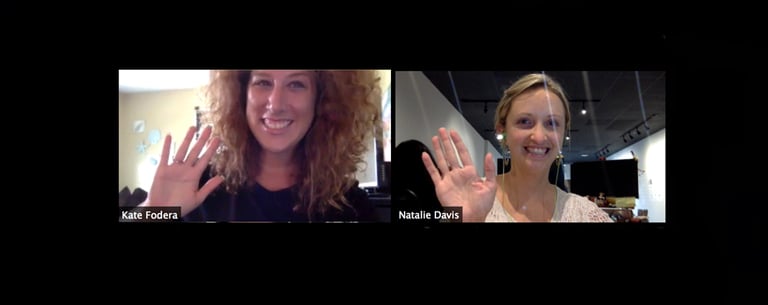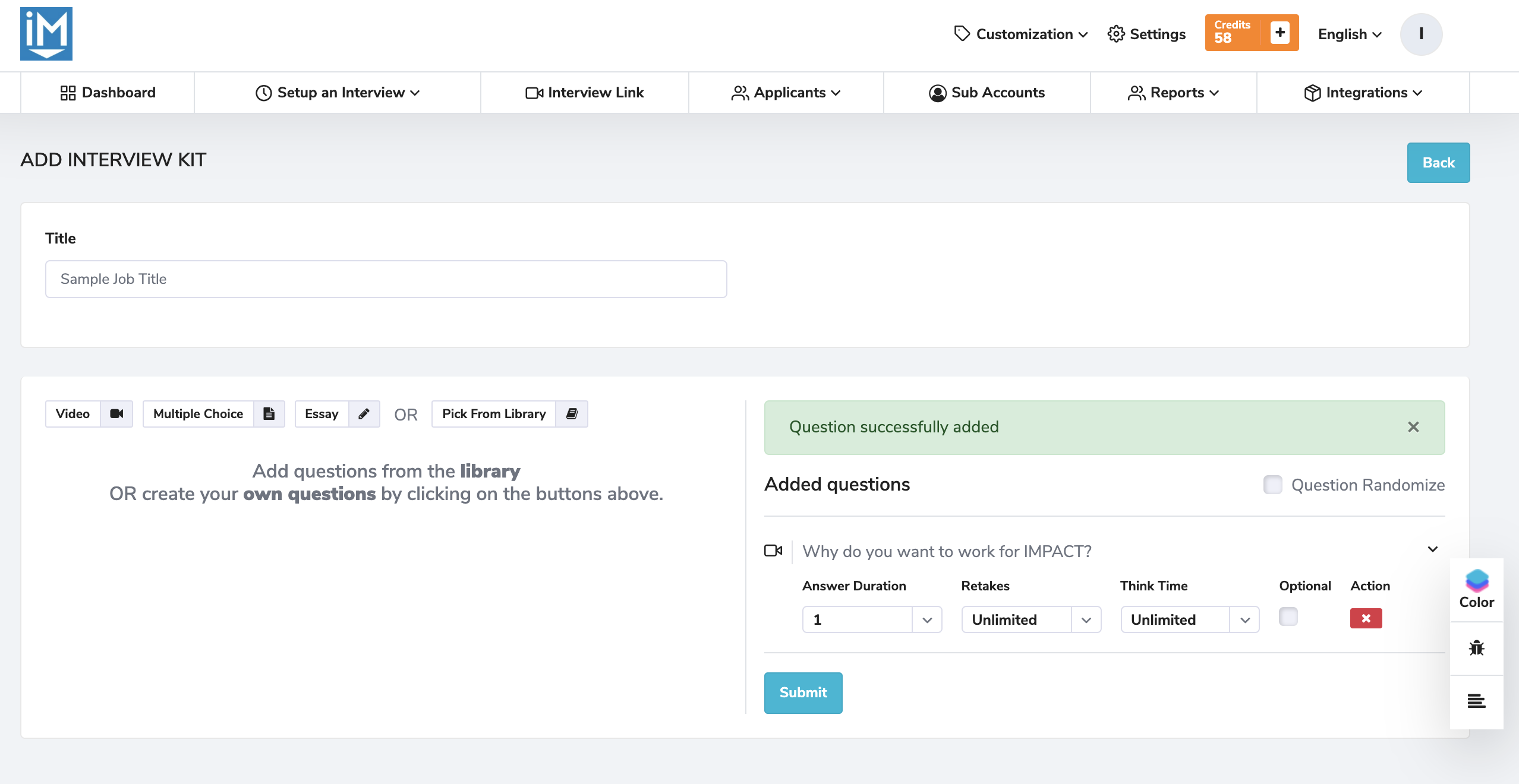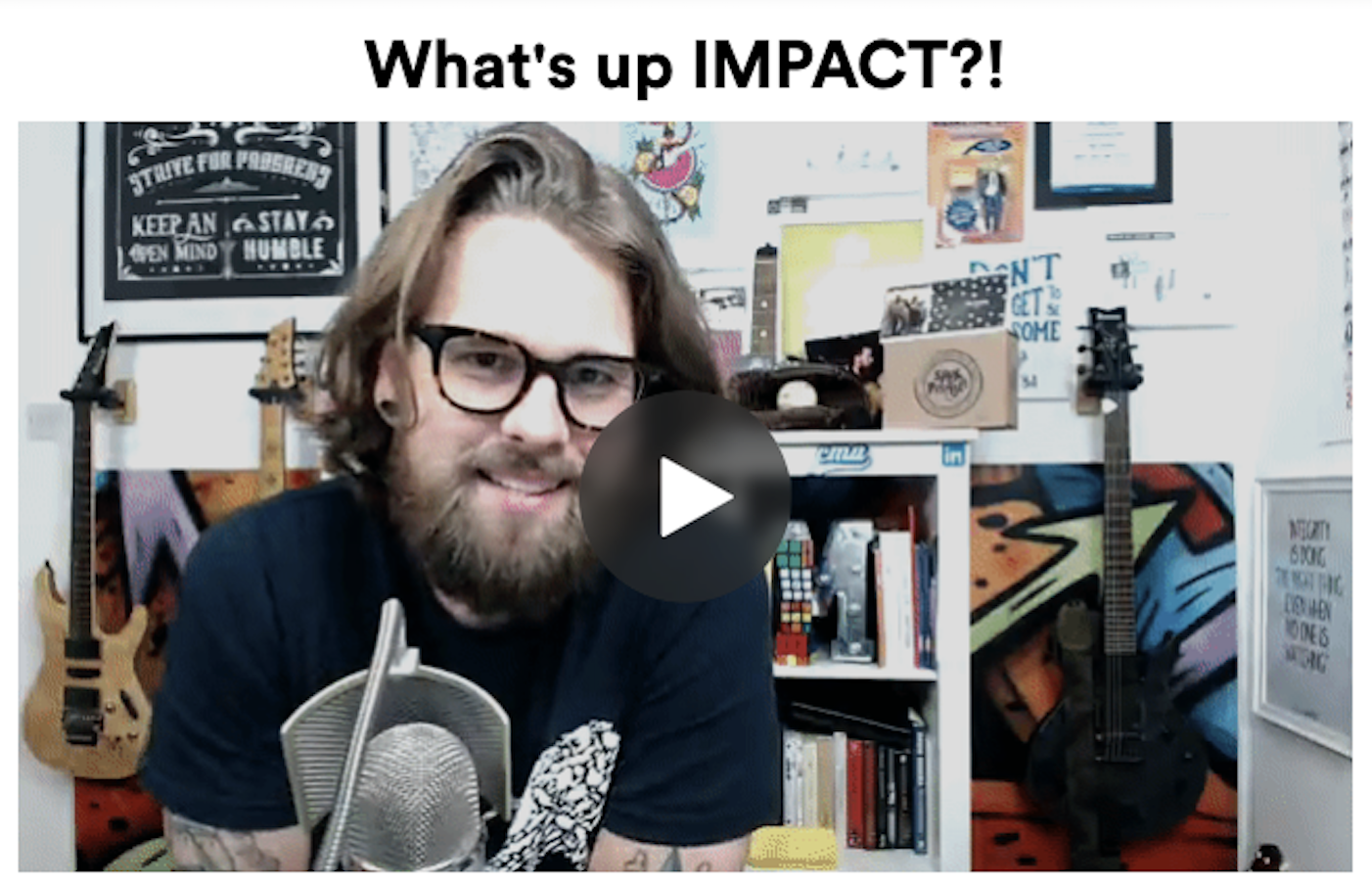Topics:
Hiring a Marketing TeamSubscribe now and get the latest podcast releases delivered straight to your inbox.
How we use video in every stage of our hiring process

Oct 25, 2019

Just a couple of years ago, we rarely used video at IMPACT.
Here and there we’d have video calls but we didn’t have a great platform for it.
We also didn’t have any official videographers or editors, and we definitely weren’t using any video in our hiring process.
Fast forward to today, we’re thrilled with Zoom and Vidyard GoVideo as our video platforms, and we use them constantly.
We have a video department, video trainers, and a videographer/producer solely focusing on creating videos for our brand.
On top of that, every single stage of our hiring process has video incorporated into it.
How things have changed in such a short period of time, right?
With the help of many people on the team, I’ve had the pleasure of building out our hiring process and choosing when and how to incorporate video. It’s amazing how it has transformed a once bland experience into an exciting journey where we really get to know the candidates on a new level.
There was an extremely noticeable difference in the ability to build a real relationship when we went from traditional phone calls to video calls with not only our job applicants but also our remote team members and clients.
Although our hiring process is constantly changing, below I’ll explain each step of our current process and how and why we use video.
1. Initial screening
In the past, we used to do a 10-15 minute phone screen with applicants who moved forward after the initial application. At the time we thought it was the quickest and most effective way to get through a lot of candidates.
After doing that for a while, we realized that the meetings were actually eating up a lot of time for our team, and coordinating calendars sometimes meant that the meeting was pushed out farther than we wanted it to be.
In an effort to ease both of those concerns, we started looking into video interviewing platforms.
Eventually, because of pricing, functionality, and the fact that it integrated with Workable, our applicant tracking system, we decided to go with Jobma.
Jobma allows us to customize questions for each role, set a time limit on each question, a number of takes allowed, and how much think-time a candidate gets.
This allows us to control the maximum amount of time we’d spend reviewing this candidate’s answers and gives us the option to stop whenever we want if it clearly isn’t a fit.

In addition, the candidate can answer the questions on their own time, and our employees can do the same when reviewing their answers.
We found that this saved our team a significant amount of time, while also speeding up the time to get through this initial stage.
2. Role overview
If someone moves on from the previous stage, we email them to schedule a 30-minute video call, however, the video call isn’t the part I want to highlight just yet.
What I think is more important is what we send in the email.
We send what we call an “80% video.”
To create this, we analyzed all of the questions asked by applicants.
On average, 80% of those questions are the same on each call at this stage.
🔎 Related: Ultimate list of culture fit interview questions
So, in an effort to educate the candidate and save a lot of time on the 30-minute call, we record a brief video answering those top questions.
Saving this time on the call allows us to really get the most out of our 30 minutes, and keeps our team sane since they don’t have to repeat themselves on every call.
3. Interviewing
After the initial questions on the video interviewing platform, all of the remaining calls are done on face-to-face on video.
We tested out a lot of platforms but ended up choosing Zoom as our favorite because we experienced the least amount of technical glitches while using it.
🔎 Related: Ultimate list of marketing interview questions for hiring managers
By being on video, each person or team to make a stronger connection with the applicant, and even feel like they’re in the same room with them. The more connected we feel with an applicant, the more we can evaluate whether or not they’re a good culture fit.
4. Status updates
In addition to using video when advancing someone in the hiring process, we also use it when we eliminate candidates at any given stage.
Once someone has put in enough time to get through our third interview stage but isn’t moving forward, we feel that we owe them something more personal than an email.
So, to provide a better candidate experience, we record personalized videos to those candidates we eliminate.
This allows us to genuinely express how much we appreciate the time they’ve invested without it seeming like (or being) a templated “breakup” email.
5. Job offer
Previously, we used to bring out-of-state applicants into the office to offer them a job face-to-face.
While it was a great idea in theory and did work out sometimes, we found that it was very disruptive to the candidates who had to take time off of work, leave their families for the night, etc.
It also was difficult to schedule, sometimes extending our process by a week or two before we found a date that worked for everyone.
Instead, we started doing video calls that include the candidate, me (VP of Talent), and the person who would be the candidate’s new manager if they become an employee.
Not only can we see each other as we talk through everything, but it’s also easy to screen share to walk through the offer and other paperwork.
While we thought these meetings wouldn’t be as effective if they weren’t in person, we’ve actually received great feedback from the employees who went through the process.
6. Intro to the team
As if we already haven’t drilled our culture of video into the mind of the applicant by now, we take it a little bit further after they sign their offer.
Before their start date, we ask new hires to record a short (one- to two-minute) video introduction of themselves and post it in our #team-intros Slack group.

Here's a screenshot of our newest hire, Chris Marr, introducing himself to the team.
This allows everyone on the team to get to know the applicant better and it encourages them to interact with him by commenting on the video.
Ideally, each new hire will feel like part of the team before they even start.
How can video improve your hiring process?
Between shortening our hiring process, educating our applicants, forming better relationships, and improving the overall candidate experience, using video has been a game-changer for our hiring process.
Spend some time reviewing the stages of your hiring process and truly evaluate if video can enhance anything. Even just one small change at a time can set you up for success in the long run.
Free Assessment: